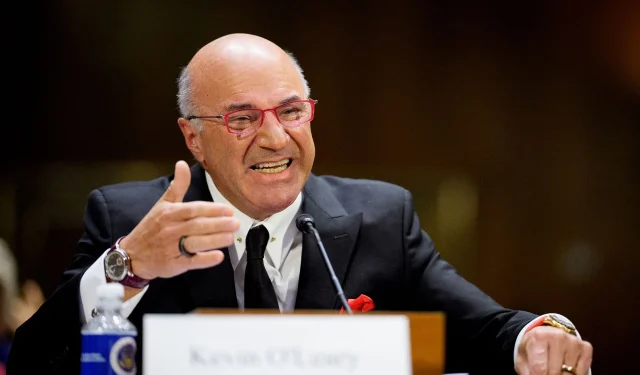In a segment from a recent interview aired on Fox News and shared on Instagram on April 14, 2025, Kevin O’Leary, renowned for his role as an investor on Shark Tank, spoke about the critical role of the American consumer market in the landscape of global trade, particularly concerning US-China economic dynamics.
The Significance of the US Consumer Market in Global Trade
During the interview, O’Leary was asked to elaborate on the effects of Chinese trade practices on American businesses and consumers. He underscored a pivotal point: China relies heavily on the US market to maintain its economic stability.
“My point is they can’t do without us,”he asserted.
O’Leary argued that this dependence of China on the US consumer presents a valuable tactical advantage for the United States in negotiations and trade agreements, especially where tariffs and market accessibility are concerned.
Understanding Consumer Power in Trade Relations
According to O’Leary, the sheer scale of the US consumer market is a major factor in its influence over Chinese trading practices. He highlighted that the United States represents a substantial 26.1% of the global GDP, which positions the country strategically in international trade discussions.
“The largest consumer market on Earth, almost 40 percent is United States of America,”he claimed.
He elaborated that the structure of China’s export economy is heavily reliant on sustained demand from American consumers. Any significant drop in this demand could severely affect Chinese manufacturing outputs.
“If they don’t have the ability to sell, this stops… and make it in the factories and employ millions of people, those people become unemployed,”he warned.
O’Leary emphasized that such economic pressure holds substantial power in influencing China’s policy-making related to international trade.
The Political Consequences of Economic Dependency
Linking economic health to political stability, O’Leary mentioned the potential risks faced by Chinese leadership. He stated:
“When you’re not a, let’s call the Supreme Leader. .. He can’t keep his job.”
Despite the absence of electoral challenges, he noted that any public discontent stemming from economic crises could threaten the stability of the Chinese government. He cautioned that failure to meet basic public needs, such as food security, could lead to unrest, which would jeopardize the standing of the leadership.
He pointed out that the likelihood of widespread unrest makes ongoing trade disruptions impractical, describing continued tensions as potentially leading to “mutual destruction.”However, he asserted that such scenarios would not escalate into long-term conflicts. O’Leary advocated for negotiations to encompass more than just tariff discussions, calling for comprehensive reforms.
“You’ve got to clean up your act with the WTO and access to your courts and access to your markets,”he emphasized.
Intellectual Property Issues and Market Accessibility
O’Leary further explored how American entrepreneurs face challenges from Chinese manufacturing practices. He stated that once a US product achieves success, it frequently gets replicated in China without consideration for the accompanying research and development costs.
“That’s the moment it gets knocked off in China because the Chinese never paid for any of the R&D,”he noted.
He explained that these counterfeit products typically invade the US market, posing a direct threat to original American companies and, consequently, to jobs across the country.
In conclusion, O’Leary asserted that addressing intellectual property rights and ensuring fair market access should be at the forefront of future trade negotiations with China. He described these matters as essential for promoting equitable engagement in the global marketplace.
“If you want to play with the big boys and the G7, it’s got to be reciprocal,”he proclaimed.
Don’t miss new episodes of Shark Tank airing on ABC every Friday at 8 PM ET, and you can catch them anytime on Hulu.


